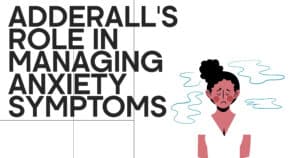Burnout is not just emotional exhaustion, it is a physical, emotional, and mental state of exhaustion caused by chronic stress at work or pressure related to personal life. In this fast-paced world, burnout has become very common. People have many responsibilities and face many pressures in society. Burnout will affect your productivity and physical health, but more importantly, it significantly affects your mental health. The first step toward overcoming burnout and preventing it from happening again is to understand how it works and its effects on mental well-being.
It examines almost everything regarding the effects of burnout on the psyche, discusses signs of burnout, examines some practical burnout recovery strategies, and offers long-term prevention tips. Whether you are suffering from burnout or supporting someone who is, this post will provide you with the knowledge and tools to navigate the process of recovering well.
Introduction to Burnout and Its Effects on Mental Health
The psychological condition identified as burnout occurs when you are overstressed for a long time and feel overwhelmed by your daily tasks. Burnout goes beyond mere exhaustion or a once-in-a-while stressful day; it is a state of emotional exhaustion, disinterest, and feeling detached from activities or work that used to provide satisfaction. Over time, this emotional and mental health deviation can become so dramatic that a person is taken aback by how these changes have developed into his or her emotional and mental health profile.
It simply means talking about the impact of burnout on mental health, and that may refer to the far-reaching effects of burnout that may lead to harm to your mental and psychological well-being. Burnout results in chronic stress, anxiety, depression, and even physical health issues.
Learning the effects of burnout on mental health is essential because it is not just about the individual. Still, it may also affect their relationships, productivity, and quality of life. Without intervention, left untreated, burnout can progress to an emotional breakdown, workplace performance can deteriorate, and eventually cause some long-term physical health problems.
Understanding Burnout: Common Causes and Risk Factors
Burnout is the most complex personal, professional, and social interaction. Knowing the causes and risk factors of burnout can help individuals take preventive measures to reduce their risk of falling into this crisis.
Common Causes of Burnout
- Workplace Stress
Most simply, work-related stress is labeled as the number one cause of burnout. It is due to overloaded working hours, over-optimistic expectations, a lack of autonomy, and an unfavorable work environment. The syndrome persists in sectors where professionals work under stressful conditions, including healthcare, education, and customer service.
- Personal Life Stress
Burnout can occur outside of work. Taking care of a family member or child, dealing with financial problems, or experiencing a severe life change can destroy one’s emotional resources. Nothing one can do is imposed from the outside, and the people around them make demands they are unprepared to cope with.
- Social Pressure and Perfectionism
Society also encourages people to perform and achieve constantly. Social media, unrealistic beauty standards, and hustle culture, among other things, make people think that they need to do more. Perfectionism also plays a huge role: holding oneself to unrealistically high standards.
- Lack of Support
If one feels their colleagues, managers, and loved ones will not support them, they will likely be burnt out. Without emotional or practical support, most people tend to feel isolated and, therefore, are unlikely to ask for help or admit to a need for rest.
Risk Factors for Burnout
Some people become burnout risk holders to a high degree because it depends on their personality, life situations, and nature of work. The main risk factors are:
- Perfectionism. The quest for perfection sometimes goes too far into over-working and stress.
- High-Stress Tolerance. In some cases, people are so used to managing stress that they overlook the early signs of burnout and don’t take appropriate measures to address it.
- Lack of Control. An individual experiences inadequate or no control over tasks that must be undertaken during his day-to-day job, making him susceptible to burnout.
- Overachievers. They always try to be successful with no time to rest or recuperate, and it leads to burnout.

Signs and Symptoms of Burnout
The early recognition of signs and symptoms of burnout is the most important factor in controlling and recovering from the condition. Burnout symptoms differ with each person but are typically associated with a mix of physical, emotional, and behavioral symptoms.
Physical Symptoms
- Continuous, excessive fatigue that is unrelieved by sleep or rest.
- Headaches or other types of body aches.
- Sleeping disturbances, such as insomnia.
- Different gastrointestinal disorders, like stomachaches or IBS.
- Reduced immunity, causing the occurrence of repeated infections.
Emotional Symptoms
- Emotional or physical burn-out.
- Feeling sad, hopeless, or helpless; withdrawal from activity.
- Irritability, frustration, or feeling overwhelmed.
- A sense of failure or being unable to accomplish tasks.
Behavioral Symptoms
- Putting off or procrastinating responsibilities.
- Withdrawal from social activities or relationships.
- Substance abuse to alcohol or drugs.
- Aversion to work or leaving or separating from hobbies
Knowledge of the symptoms and identifying them as early as possible is the key to proactively managing burnout.
How Burnout Impacts Mental Health
There is quite an intense relationship between burnout and mental health. Burnout appears to be the risk factor for the propensity of the emergence of mental health issues such as anxiety, depression, and chronic stress. The cumulative impact of burnout can become too much for people’s capacity to deal with the level of stress daily, hence opening up more significant psycho-pathological problems.
Emotional and Cognitive Effects
Burnout can engage the emotional side that differentiates you from life. You may lose things you used to enjoy or find meaningful. Your ability to think, such as remembering, concentrating, and reasoning, is also impacted.
Long-Term Consequences
If untreated, burnout may develop into chronic mental health disorders, such as GAD and MDD. This can also worsen cases of PTSD or OCD.
The impact of burnout on mental health could significantly contribute to your lack of performance in your personal life and professional sphere as well. Without proper recovery methods, burnout can leave deep emotional scars.
Strategies for Managing and Recovering From Burnout
Recovery for managing burnout calls for intensive self-care, the setting of boundaries, and professional support. Here are some burnout recovery strategies to help you regain your balance and improve your mental health.
Self-Care Practices for Burnout Recovery
Physical Rest and Exercise | There is nothing better for the body than getting a good night’s sleep, and it is also good for mental restoration. Sleep quality should be 7-9 hours every night. Maintaining regular physical exercises such as walking, yoga, or swimming helps cope with stress and can even elevate mood. |
Mindfulness and Relaxation | Practicing mindfulness meditation or deep breathing can help tranquilize the mind and restore balance. Such activities Lower stress levels and help with emotional management. |
Nutrition and Hydration | A balanced diet and healthy hydration help to combat fatigue and uplift a mood. Reduce your intake of caffeine and sugar-containing products, which lead to energy crashes. Focus on nutrient-rich whole foods: leafy greens, fruits, nuts, and whole grains. |
Setting Boundaries and Reducing Stress
- Learn to Say No
Managing burnout helps one learn how to say no. Give up overcommitting to specific tasks or responsibilities and leave time for self-care.
- Delegate Tasks
Delegate your workload at the workplace or even at home so that you can reduce it to your ability.
- Manage Workload
In addition, you can prevent overwork and save time from worries by regularly taking short intervals of relaxation at the workplace.
Seeking Professional Help
- Consultation. Discussing your issues with a therapist or counselor can help you release your emotions, find ways to help you cope, and many other things.
- Support groups. Joining a support group may help deal with burnout or during a mental health crisis. It might validate your feelings and make you realize you are not alone.
- Medical support. A healthcare provider can prescribe some medication if necessary, which helps to ease anxiety or depression.
Long-Term Prevention Tips to Avoid Burnout
Recovery from burnout is just as important as prevention from it. Here are some tips to help you avoid experiencing burnout in the future:
- Maintain Good Time Management Techniques
Practice effective time management techniques, such as prioritizing activities and ensuring realistic time frames for completing tasks.
- Practice Self-Care
Engage in regular self-care, schedule downtime, do activities that bring you joy, and ensure a balance between work and relaxation.
- Establish Supportive Relationships
Surround yourself with supportive friends, family, and colleagues who appreciate your struggles and can offer the emotional support you need to navigate such projects.
- Maintain Your Values and Purpose
Regularly reassess your goals and values to ensure that your work and personal life align with what matters.
Final Thoughts: Reclaiming Mental Health After Burnout
Burning out is a severe condition, but it may be conquered only through strategy. Knowing what burnout is, its effects on mental health, and how to get over burnout will keep you emotionally balanced and protect you from future attacks. Burnout is not a weakness but rather a sign that you should care for yourself by balancing between getting crazy at work and facing your problems at home.
If you are on your way to falling into the danger zone of burnout or have a friend or family member who may be on their way into it do not wait for the situation to worsen. Try some recovery strategies today; mental health is worth the effort.

FAQs
- What is the first sign of burnout?
The first sign of burnout is usually emotional exhaustion, where you begin to feel overwhelmed and unable to keep up with the demands of your work or personal life. This might manifest as feeling drained, lacking motivation, or feeling detached from your responsibilities. Other early signs include irritability, frustration, and a sense of inefficiency. Recognizing these signs early can help you proactively manage burnout before it worsens.
- How long does it take to recover from burnout?
Recovery from burnout varies depending on the individual and the severity of the burnout. It can take a few weeks to several months to fully recover. However, the key to recovery is a consistent effort toward burnout recovery strategies, such as rest, self-care, and seeking professional support. The more committed you are to managing your mental health and making necessary lifestyle changes, the faster your recovery can be.
- Can burnout lead to long-term mental health issues?
Yes, if left unchecked, the impact of burnout on mental health can lead to long-term mental health problems, including depression, anxiety, or chronic stress. Burnout can also contribute to more severe issues such as substance abuse or PTSD, primarily if the burnout stems from traumatic or highly stressful situations. Seeking help early is crucial in preventing these long-term consequences.
- Is it possible to prevent burnout?
Yes, burnout can be prevented by adopting effective burnout recovery strategies and lifestyle changes. Setting boundaries, practicing self-care, and managing your workload can significantly reduce the risk of burnout. In addition, regularly evaluating your work-life balance, staying connected with supportive relationships, and taking regular breaks can also help you avoid burnout. Prevention is about being mindful of your mental health and recognizing when to slow down.
- How can I support someone who is experiencing burnout?
If someone you know is experiencing burnout, offering emotional and practical support is important. Encourage them to seek professional help and let them know they’re not alone in what they’re going through. Offering to help with their responsibilities or providing a listening ear can ease their burden. Most importantly, remind them that recovery is possible and that it’s okay to take time off to focus on burnout and mental health.







